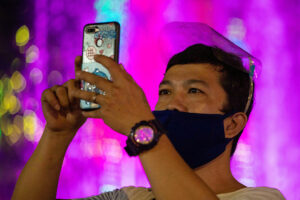PHL is most dependent on mobile phone in Asia, says study

AROUND 29% of mobile internet users in the Philippines are always with their phones, making the country the most dependent on mobile phone usage in Asia, according to a study on digital adoption in Asia by global telecommunications company Telenor.
The Digital Lives Decoded study also found that 93% of respondents believe that their mobile usage improves quality of life.
Nearly all those surveyed said their mobile device is with them for at least half of the day, but most (76%) still said they have a good balance of technology use (76%). Three in four also said they expect their mobile usage to increase in the coming years.
“Compared to before the pandemic, mobile data usage has more than doubled in most Asian markets, reshaping how we communicate at work and at home,” said Jørgen Rostrup, head of Telenor Asia, in a statement.
“Interestingly, this survey shows that people want the changes in digital use and their daily lives to stay. In fact, they continue to immerse themselves in a digital world despite rules on travel and social interaction being relaxed,” he added.
Gen Z and Millennials are worried about overusing technology and lacking skills to keep up with the pace of digital acceleration. About 85% of respondents across all generations expressed worries about a digital skills gap.
Asian mobile internet users are also concerned about privacy and security, according to 93% of respondents in the region.
“Lacking the right skills and awareness, including to navigate safety and privacy issues, or being off the grid can severely restrict access to education, healthcare, economic and employment opportunities,” Mr. Rostrup said.
Still, optimism about the potential of mobile technology remains, with 88% recognizing how mobile connectivity gives better access to education and healthcare and three-fourths saying they believe in its role in leading a greener, more sustainable life.
Though the biggest benefit that almost all (92%) cited was financial inclusion, Mr. Rostrup pointed out that 60% of responses were from those living in cities, highlighting the ongoing need to broaden the reach of financial services beyond urban areas.
“As connectivity puts power into the hands of people, this study also revealed where digital gaps remain, particularly in rural and elderly populations. With mobile connectivity evolving from a nice-to-have to a must-have, the need to understand these gaps is becoming more important to policymakers, businesses, and individuals alike,” he said.
The study surveyed over 8,000 mobile internet users in eight countries, namely, Bangladesh, Indonesia, Malaysia, Pakistan, the Philippines, Singapore, Thailand, and Vietnam. — Brontë H. Lacsamana




